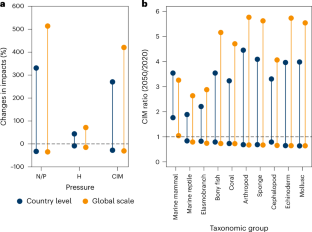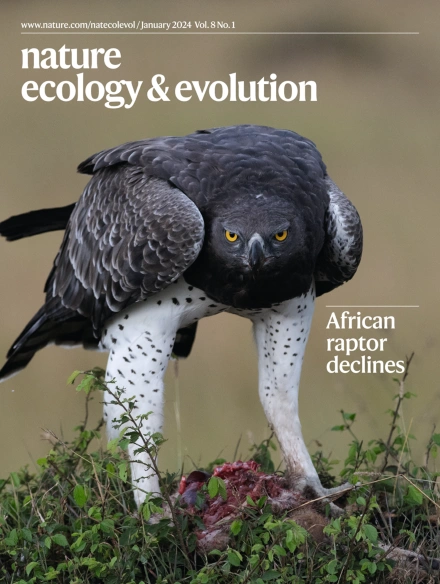战略规划可支持海产养殖的可持续发展
IF 13.9
1区 生物学
Q1 ECOLOGY
引用次数: 0
摘要
战略规划有可能减少海水养殖对海洋生物多样性的影响。这种方法可以将海水养殖对全球生物多样性的影响从2020年的水平减少30.5%,同时满足到2050年全球对养殖海产品需求的预测增长,即鳍鱼需求增长1.82倍,双壳类需求增长2.36倍。本文章由计算机程序翻译,如有差异,请以英文原文为准。


Strategic planning could support sustainable mariculture development
Strategic planning has the potential to reduce the effects of mariculture on marine biodiversity. This approach can reduce the global biodiversity impacts of mariculture by up to 30.5% from 2020 levels, while meeting predicted global increases in demand for cultivated seafood of 1.82-fold for finfish and 2.36-fold for bivalves by 2050.
求助全文
通过发布文献求助,成功后即可免费获取论文全文。
去求助
来源期刊

Nature ecology & evolution
Agricultural and Biological Sciences-Ecology, Evolution, Behavior and Systematics
CiteScore
22.20
自引率
2.40%
发文量
282
期刊介绍:
Nature Ecology & Evolution is interested in the full spectrum of ecological and evolutionary biology, encompassing approaches at the molecular, organismal, population, community and ecosystem levels, as well as relevant parts of the social sciences. Nature Ecology & Evolution provides a place where all researchers and policymakers interested in all aspects of life's diversity can come together to learn about the most accomplished and significant advances in the field and to discuss topical issues. An online-only monthly journal, our broad scope ensures that the research published reaches the widest possible audience of scientists.
 求助内容:
求助内容: 应助结果提醒方式:
应助结果提醒方式:


